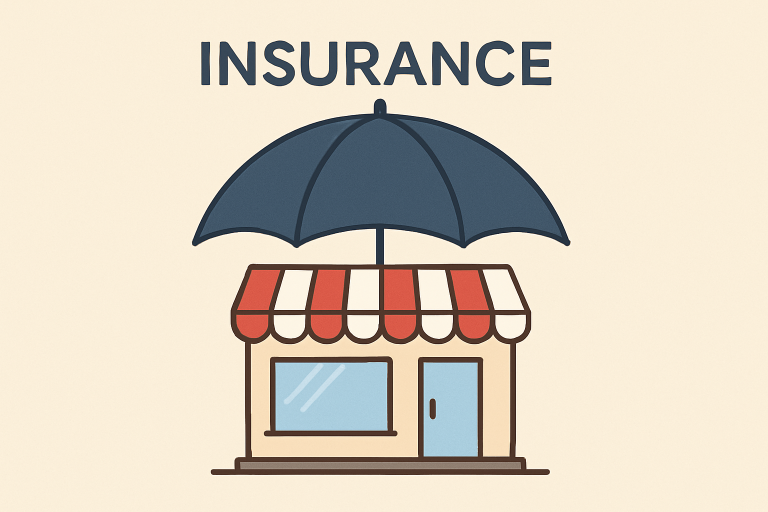Key Takeaways
- Business insurance protects small businesses from unpredictable risks and costly claims.
- Comparing business insurance quotes ensures cost-effective coverage tailored to your needs.
- Insurance is crucial for legal compliance, resilience, and supporting business growth.
- Start today with a clear checklist to safeguard your company’s future.
Table of Contents
- Protecting Your Business: The Growing Need for Insurance
- Types of Risks Faced by Small Businesses
- Why Comparing Quotes Matters: Saving Money and Customizing Coverage
- How to Get Insurance Quotes Quickly and Efficiently
- The Role of Insurance in Small Business Recovery
- Legal and Contractual Obligations for Small Businesses
- Insurance as a Tool for Growth and Confidence
- Key Takeaways: Act Now, Protect Your Business Future
Protecting Your Business: The Growing Need for Insurance
Running a small business comes with both opportunities and risks. From property damage to liability claims, unexpected challenges can strike any time, leaving unprepared owners with significant financial setbacks. Insurance acts as a safety net, ensuring that when unforeseen circumstances occur, your business can recover without losing momentum. In today’s fast-paced and unpredictable market, protecting your assets, employees, and reputation has become more critical.
One of the most innovative steps entrepreneurs can take is comparing coverage options before committing to a policy. Obtaining business insurance quotes allows you to evaluate different providers, weigh costs against coverage, and identify gaps that could leave your company vulnerable. By taking the time to research and secure the right plan, you’re safeguarding your operations and building resilience for long-term success. Being proactive can prevent devastating losses later, giving your business the stability it needs to grow.
Types of Risks Faced by Small Businesses
Every small business—no matter the industry—faces a unique set of risks. Some of the most common dangers include:
- Liability Claims: Allegations of bodily injury or property damage caused by your business can lead to expensive lawsuits.
- Property Damage: Fires, storms, theft, or vandalism can cause significant financial loss.
- Data Breaches: With increasing digitization, cyberattacks and data breaches are rising, exposing sensitive customer and business information.
- Employee Injuries: On-site injuries can be financially catastrophic without proper coverage.
- Business Interruption: Events beyond your control can halt operations—sometimes for weeks or months.

Why Comparing Quotes Matters: Saving Money and Customizing Coverage
Every business is different, and so are the risks it faces. By seeking multiple business insurance quotes, you gain two significant advantages: competitive pricing and the ability to tailor coverage to your operations. Shopping around encourages insurers to offer their best rates, ensuring your small business doesn’t overpay for protection—or, worse, ends up underinsured.
The right policy is more than just a legal buffer—it’s a smart business move. Customizing deductibles, coverage limits, and additional riders ensures your policy is built around your day-to-day needs, not just industry benchmarks.
How to Get Insurance Quotes Quickly and Efficiently
Gathering insurance quotes has never been easier with today’s digital tools. Start by using reputable online platforms to compare offers. Prepare essential documents: your business’s legal structure, payroll figures, revenue history, inventory lists, and current contracts. The more detailed your information, the more accurate your quotes will be.
When comparing options, look beyond the premiums. Assess coverage limits, exclusions, customer service reviews, and agency financial ratings. A well-informed approach ensures your business receives the highest-quality protection at a fair price.
The Role of Insurance in Small Business Recovery
Insurance isn’t just for hypothetical events—it’s a proven lifeline during real disasters. Consider the many small businesses that have encountered fires, severe weather, or costly lawsuits—adequate insurance has helped them reopen, repair damage, or settle legal issues without closing forever. However, rising premiums create new obstacles. Today’s small businesses often pay more for coverage, sometimes forcing tough decisions about their operations or even their survival. That’s why it’s essential to regularly review and compare policies to ensure you get the best value for your money.
Legal and Contractual Obligations for Small Businesses
Beyond state and federal requirements, many small businesses face insurance demands from clients, partners, or landlords. Proof of insurance is often mandatory when bidding for a contract, signing a lease, or applying for a business loan. Meeting these requirements helps you remain compliant with all legal, regulatory, and contractual obligations, protecting your business from legal exposure and preserving critical relationships.
Failing to maintain adequate coverage can result in missed opportunities, costly penalties, or even the loss of valuable partnerships. Insurance serves as a safeguard against unexpected financial burdens and a sign of reliability and professionalism. By carrying the proper protection, business owners show stakeholders they are prepared for potential challenges and committed to long-term stability. Regularly reviewing coverage ensures policies remain current with your company’s growth, providing ongoing security. Ultimately, meeting insurance obligations enhances credibility, builds trust, and promotes sustainable business success.
Insurance as a Tool for Growth and Confidence
Proper insurance covering your liabilities, property, employees, and digital assets does more than reduce fear—it frees business owners to focus on opportunities. With protection, you can pursue new markets, develop innovative products, and expand your workforce without worrying that an unforeseen event will threaten everything you’ve built. Insurance acts as a foundation for growth, not just a safety net.
Key Takeaways: Act Now, Protect Your Business Future
Securing business insurance is a proactive investment in your company’s health, longevity, and possibilities for the future. Taking action now fulfills legal requirements and ensures you’re ready to weather challenges, explore opportunities, and build customer trust.
Small Business Insurance Checklist
- Identify your primary risks (liability, property, cyber, etc.).
- Gather vital business documents and financial details.
- Request multiple business insurance quotes from trusted providers.
- Vet policies for value, coverage, and customer support.
- Align your policy with legal and contractual duties.
- Review your coverage annually to keep pace with changing risks.
Start today to ensure your small business isn’t just protected—but positioned for real, long-term success.
YOU MAY ALSO LIKE: How Consistent Test Conditions Drive Quality in Product Development

